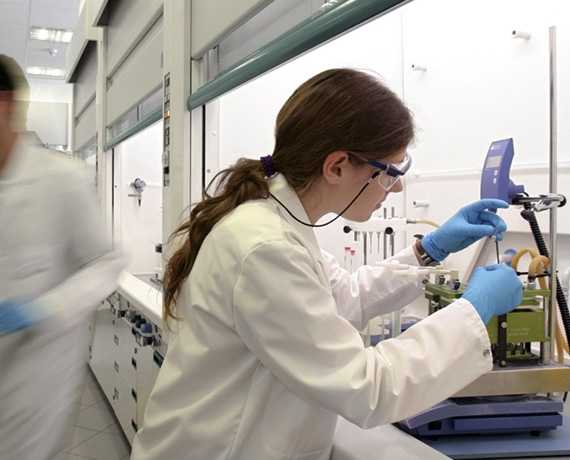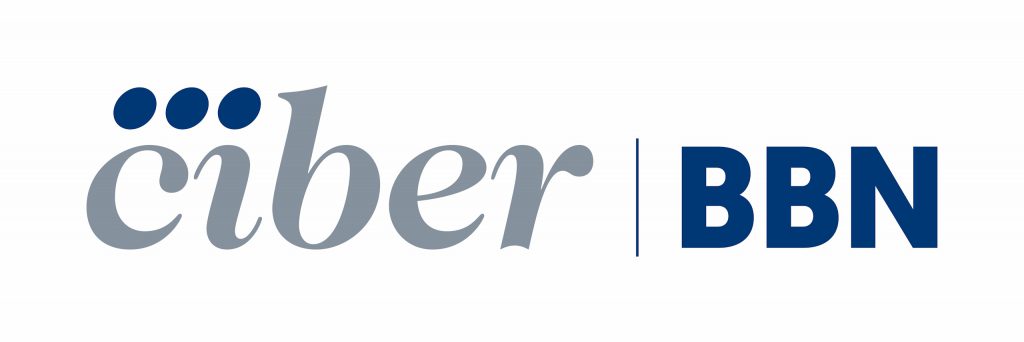
U3. Synthesis of Peptides Unit
- Scientific Director: Dr. Miriam Royo miriam.royo@iqac.csic.es
- Entities: Institute of Avanced Chemistry of Catalonia (IQAC) & Consejo Superior de Investigaciones Científicas (CSIC)
- Address: Jordi Girona, 18-26, 088034, Barcelona, Spain
- Phone: +34 934 006 100
- Web: IQAC- CSIC
Order request
This Unit is coordinated by the Multivalent Systems for Nanomedicine goup at IQAC-CSIC and has the equipment necessary to provide services of synthesis of peptides at different scales (mg to g), purification, characterization, and post-synthesis modification, such as, conjugation to proteins and fluorescent. It counts with laboratories for synthesis and other to carry out modification of the peptides during and post synthesis labels. Also counts with a laboratory equipped with several preparative and analytical chromatography systems for purification and characterization. This facility benefits from the wide experience of Dr. Fernando Albericio an Dra. Miriam Royo in the design and synthesis of peptides with specific biological activity and the introduction of modifications necessary for these peptides to be bound to therapeutic nanoconjugates and other molecules, either to take advantage of the pharmacological activity of the peptide itself or to facilitate the introduction of nanoconjugates or other molecules into the cells in order to reach the therapeutic target. Its location allows the access to the rest of services of the IQAC-CSIC.
Services
FOR THOSE SERVICES IDENTIFIED AS OUTSTANDING, AT LEAST 20% OF THEIR CAPACITY IS OPEN UNDER COMPETITIVE ACCESS. SEE ANNEX 1 OF ACCESS PROTOCOL FOR DETAILS ON % OF OPENNESS FOR EACH SERVICE
U3. Services & Rates
Equipments
In addition, this unit has access to:
Other projects
| Ref |
Title |
Funding Organism |
Unit Role |
| SAF2015-67476-R |
Immunochemical Strategies of Diagnosis and Therapy based on Quorum Sensing (ImmunoQS) |
Ministerio de Economía y Competitividad |
Participant |
| RTC-2014-2207-1 |
TERARMET: Development of therapies for the treatment of rare congenital metabolic diseases |
MINECO |
Participant |
Publications
2016
- Cabrera I., Abasolo I., Corchero J.L., Elizondo E., Gil P.R., Moreno E. et al. α-Galactosidase-A Loaded-Nanoliposomes with Enhanced Enzymatic Activity and Intracellular Penetration. Advanced Healthcare Materials. 2016;5(7):829-840.
- Giannotti M.I., Abasolo I., Oliva M., Andrade F., Garcia-Aranda N., Melgarejo M. et al. Highly Versatile Polyelectrolyte Complexes for Improving the Enzyme Replacement Therapy of Lysosomal Storage Disorders. ACS Applied Materials and Interfaces. 2016;8(39):25741-25752.
News U3
04 Nov

NANBIOSIS held its 2025 networking event in Cáceres to boost collaboration among Units in biomaterials, nanomedicine, and biomedical research. Cáceres, October 2025 — From 22 to 24 October 2025, the Singular Scientific and Technical Infrastructure (ICTS) NANBIOSIS held its annual internal networking event at the Centro de Cirugía de Mínima Invasión Jesús Usón (CCMIJU) in Cáceres, Spain. The event brought together Unit coordinators, researchers, and technical staff from across Spain to foster collaboration, share scientific progress, and explore new opportunities for joint projects in biomedical research, nanomedicine, and biotechnology. A meeting to boost collaboration across NANBIOSIS Units The three-day event[...]
23 May
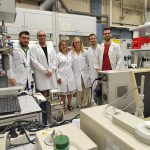
“Fabry Connections” united patients, researchers, and clinicians at ICMAB to advance Fabry disease care and nanomedicine-based therapies. Barcelona, april 2025. On Tuesday, 29 April 2025, the Institute of Materials Science of Barcelona (ICMAB, CSIC) hosted the event “Fabry Connections: Science, Patients, and Future”, bringing together around 50 participants including researchers, clinicians, patients, and patient association representatives. The event aimed to create a multidisciplinary platform for sharing knowledge and advancing the future of Fabry disease research and treatment. Attendees at the Fabry Connections event at ICMAB | ICMAB-CSIC As we announced back in february 28, this special event was held within Fabry Diseas[...]
29 Jan
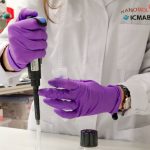
Fabry disease therapy nanoGLA, developed by NANBIOSIS and our partners, shows superior efficacy in preclinical trials, targeting systemic and brain symptoms. Barcelona, january 2025. An international research team led by the Institute of Materials Science of Barcelona (ICMAB-CSIC) and CIBER-BBN, in collaboration with the Institute of Advanced Chemistry of Catalonia (IQAC-CSIC), has developed a groundbreaking nanotechnology-based therapy called nanoGLA for the treatment of Fabry disease. The innovative solution has shown remarkable efficacy in preclinical studies and has been published in the open-access journal Science Advances (see below for reference links). What is Fabry disease? Fabry disease is a rare genetic[...]
09 Oct
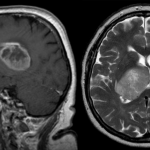
Directors of Unit 20 and Unit 3, Ibane Abasolo and Miriam Royo, show us the ReachGlio project, which uses nanomedicines to slow glioblastoma growth by targeting tumors in the brain, improving drug delivery through nanoparticles. Barcelona, october 2024. Each year, on October 9th, Nanotechnology Day is celebrated, a discipline dedicated to understanding and utilizing matter at a nanometric scale for purposes such as industrial or medical applications. Nanotechnology plays a fundamental role in many research lines developed at the Institute for Advanced Chemistry of Catalonia (IQAC-CSIC) and the Vall d’Hebron Research Institute (VHIR). “Our goal is to propose one or more clinical trials in[...]
08 Nov

2023 CIBER-BBN Annual meeting has taken place at Santemar Hotel, in Santander during November 6-7. This year the format of our annual conferences has been changed towards a collective event scheme between the CIBER-BBN and CIBEREHD thematic areas. On Monday 6 the scientific sessions werecommon for EHD and BBN, with appealing contents for the mixed audience. On Tuesday 7 EHD and BBN sessions will specific for each area in separate rooms (with common coffee break). Posters of both areas were on display in the exhibit hall throughout the entirety of the Annual Meeting. Moreover, at the “Posters & beers” session (Monday[...]
20 Jan
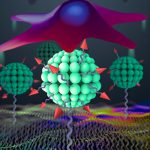
Researchers of three groups of CIBER-BBN at CSIC and IBEC, have created a versatile platform based on hierarchically nanostructured RGD peptide using quatsomes, with proved enhanced cell adhesion. These findings, which arose within the framework of the intramural project of CIBER-BBN “Molecular Biointerfaces for cell guidance” (DynaMo4Vasc), open new possibilities for tissue engineering. The participation of two NANBIOSIS units were acknowledged in the publication of the research results: the synthesis of RGD derivatives were performed at NANBIOSIS U3 “Synthesis of peptides unit” of CIBER-BBN at IQAC−CSIC. And the design and characterization of quatsomes were done at U6 of NANBIOSIS “Biomateria[...]
15 Nov
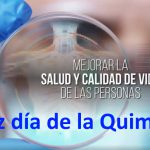
Today, November 15 is a day of celebration for us, the Day of the Chemistry in Spain! Chemistry is the science that studies matter, how it is composed, its properties and how its structures are transformed and, as matter is everything, including living beings and ourselves, we can say that chemistry is omnipresent and transversal in all areas surrounding us. Chemistry is everywhere, we ourselves are chemistry and our health and our life is chemistry. “Everything around us is chemistry in the environment, foods, what we use and what we touch every day. Our own body is a sophisticated complex[...]
27 Jul
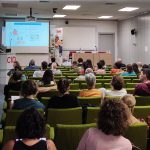
During the days 30 of June and 1st of July took place in Barcelona, in the auditorium of the Institute of Advanced Chemistry of Catalonia (IQAC-CSIC), the 1st Forum on Nanomedicine gathering scientists from the CSIC net Nanomed Conection and from the CIBER-BBN and its ICTS NANBIOSIS. This forum brought toguether researchers from the most eminent national research centers in nanomedicine, that during the two days meeting presented their works and findings and discussed the impact of nanomedicine in the fields of drug delivery, diagnosis and therapy. The workshop was open by the Director of IQAC-CSIC, Jesús Joglar, the Scientific Coordinator[...]
